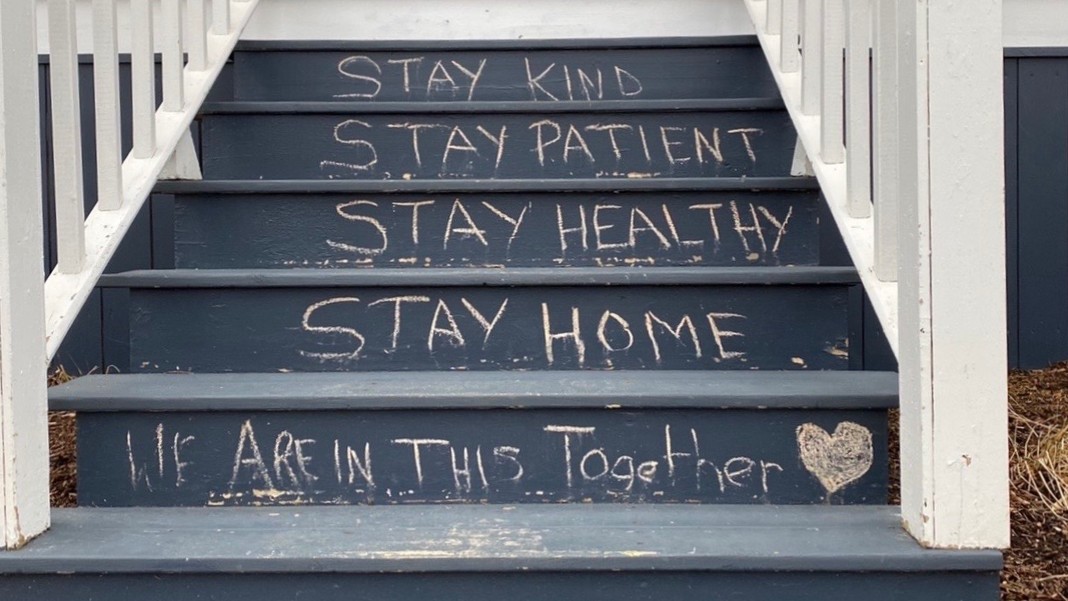‘Being kind to yourself’: How to self-isolate at home
COVID-19 has forced us inside. Here's how to care for your mental health.

caption
A message about staying home and safe on the front steps of a house in south-end Halifax.Being stuck at home can be a nightmare for some people.
“It feels as though the world has come to a screeching halt, so it’s natural that you might as well,” says Florence Wallace, a Dalhousie University student and blogger.
Wallace started her blog Late Bloomer to help people who struggle with self-acceptance, using her own struggles to teach self-care. She likes to give advice, but acknowledges even she has a tough time following it at times, particularly during a pandemic like COVID-19.
“I slipped up a little bit, but I’m finding that just embracing a slower pace in life is good,” says Wallace. “Understanding my limitations and working within them” is key, she says. Related stories
She suggests going for walks to stay active and trying new things, such as listening to a new podcast or learning a new skill. She tries to plan meals to keep from eating too much or too little and to remember to rest when she feels overwhelmed.
The Nova Scotia government imposed restrictions more than a month ago in an attempt to curb the spread of COVID-19, the highly contagious disease caused by the novel coronavirus. All but non-essential workers are supposed to stay at home. People who do venture out are required to stay two metres apart.
For Sarah Barron, the key to maintaining good mental health during self-isolation is a flexible routine. Barron is working toward a master of science degree in professional counselling with a focus on clinical mental health.
“While some things feel out of our control, there are still things in our lives that we can control,” she says. “For example, sleep schedule, what we eat, social media consumption, how to talk to yourself and others and your outlook. Sometimes feeling this sense of control can be empowering and help reduce negative feelings.”
Barron says that with many of us not physically going to work or meeting face to face, we may lose our sense of meaning and purpose in our lives.
“A lack of face-to-face social interaction can take a toll on our well-being and lead to feelings of loneliness,” she says. “As humans, we are innately social beings, so this interaction is huge.”
The province’s coronavirus website lists a number of resources and tips on mental health, such as eating well, practising yoga and staying connected with friends and family. Many Halifax residents are also sharing their own ideas, from making art to baking, on Facebook.
Barron says from a psychological standpoint, it is most important to put yourself and your health first, using healthy coping strategies.
“Being kind to yourself can help reduce negative feelings and help us to stay connected with others and ourselves emotionally and spiritually.”
In Nova Scotia, call 811 if you need information about mental health.
About the author
Carleigh MacKenzie
Carleigh MacKenzie is a Cape Breton-born writer. She is the copy editor for the Dalhousie Gazette and the vice-president of Dalhousie’s Creative...
